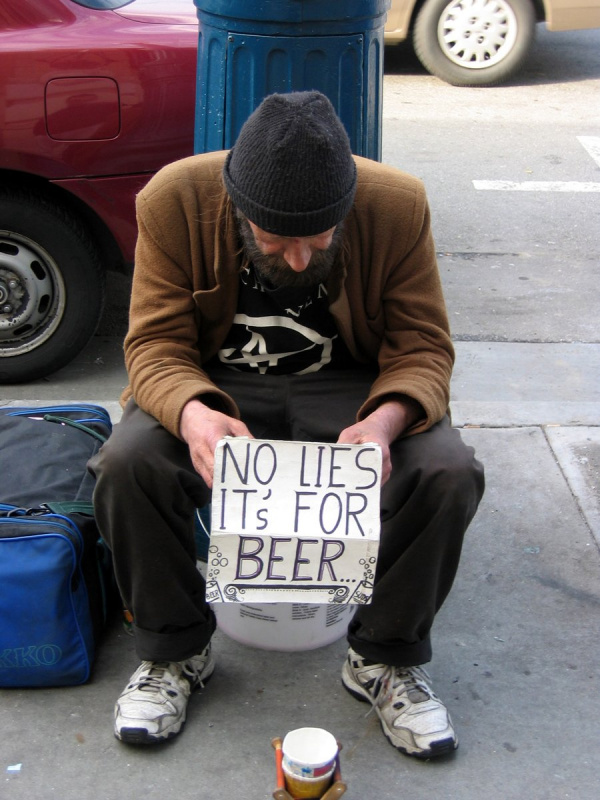City of Springfield officials continue to work with community partners to address the challenges associated with panhandling in Springfield. Thus far, our efforts center around addressing two daunting challenges: getting to the root cause of why people panhandle, and staying within the confines of the law when it comes to regulation.

Cities across the U.S. are abandoning efforts to regulate panhandling as courts have ruled those those efforts unconstitutional.
In 2015, Springfield City Council passed a measure that built upon a previous aggressive panhandling ordinance. Later that year, a 61-year-old disabled man and the ACLU filed a federal lawsuit against the City, alleging his First Amendment rights were violated when a Springfield Police department officer warned him that his behavior while soliciting money at the corner of Grant and Kearney violated a City ordinance.
Courts around the country have struck down panhandling laws because it is argued that they single out one topic of speech to regulate: panhandling. In 2015, a Supreme Court decision by Justice Clarence Thomas took the view that most panhandling laws were targeting the message, further strengthening pro-panhandling support. Since this ruling, the lower courts have relabeled panhandling restrictions as content-based speech and put them to the harshest legal test – one that few laws pass.
City Council repealed the local ordinance addressing panhandling in February 2016.
The City has concurrently turned to the Springfield community to see if we can address the other side of the equation: the causes of panhandling. We turned to One Door, the community’s central point of intake for homeless services; the Council of Churches of the Ozarks; Burrell Behavioral Health; and The Gathering Friends homeless advocacy group, for help in creating a pilot project to address the root causes of panhandling in our city.
Additional partners PeopleReady and the Missouri Job Center are part of the effort and while we have not been able to place any individuals into full-time employment yet, we are learning a lot about the problem.
 The result is a volunteer-driven program called Wheels To Work. The goal of the project, which relies heavily on volunteers, is helping those who panhandle find dignity-constructing work and address the barriers they face to sustainable employment.
The result is a volunteer-driven program called Wheels To Work. The goal of the project, which relies heavily on volunteers, is helping those who panhandle find dignity-constructing work and address the barriers they face to sustainable employment.
Wheels to Work is designed to work specifically for homeless and other individuals found panhandling at 12 of Springfield’s major intersections identified by the Springfield Police Department as consistently frequented by panhandlers. This is not an easy thing to do, but Springfield has a full complement of social service agencies, faith-based institutions and passionate advocacy groups willing to work with local government to try new things in an ongoing effort to get people employed and off the streets.
We believe from our initial research that the marked increase in panhandling activity in Springfield is due to four causes: increasing levels of poverty, the recent federal court rulings, milder-than-normal weather across all seasons and the “giving” nature of Springfieldians.
Here is where we need your help. As much as you may feel like you are helping by handing cash out the window of your car, we are respectfully asking you to stop.
Instead of handing cash out the window, we ask that you send that same “donation” to United Way of the Ozarks, which supports the organizations that provide caring and compassionate assistance to individuals in need. You can do this by texting WHEELS to 40403 or by visiting uwozarks.com. If panhandling concerns you, we invite you to be part of the solution.
We acknowledge that Wheels to Work has been marginally successful to this point. We need more volunteer drivers for the buses so we can send the buses out to intersections more often. And we have yet to place one panhandler into employment, but we are working with 15% of the 207 we have encountered so far. It is our hope that we can keep them on the path to self sustainment.
We will continue to approach this issue with compassion and grace. It’s an emotional issue for people on all sides of it.
Please visit Wheels to Work on Facebook facebook.com/wheelstoworkSGF.
Preliminary Statistics for Wheels to Work
- Total engagements: 207 panhandlers, 15% of whom got on the bus and took advantage of services.
- About 70% are homeless.
- About 80% have some form of mental or physical disability.
- Almost all lacked reliable transportation.
View the videos below to hear why these folks support the Wheels to Work program.


